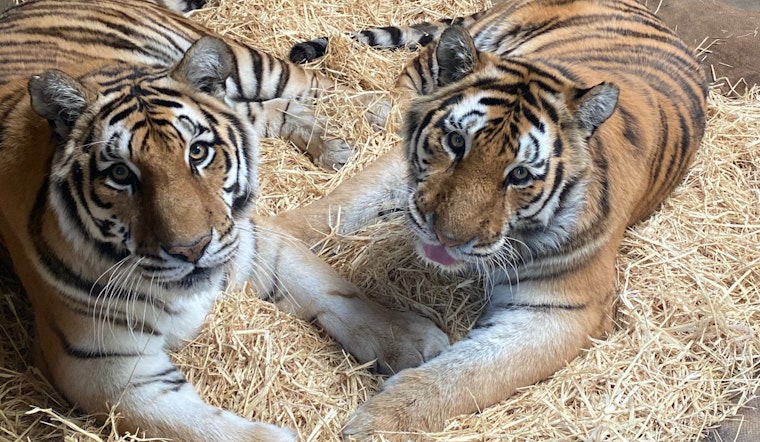
It was a sad day at the Tropical Rainforest section at the Oakland Zoo Monday, as the exhibit said goodbye to two mainstays who’d lived there for ten years. Two adult female tigers, Molly and Milou, had to be euthanized there Monday, with the zoo saying on social media that “both of these beautiful animals were struggling with severely declining health in their old age, including advanced kidney disease and debilitating arthritis.”
The two tiger sisters were both 16 years old.
We have extremely sad news to share with you — today we had to say goodbye to tiger sisters Molly and Milou, who have been part of our Oakland Zoo family for the past 10 years. (thread) pic.twitter.com/fjVTNAa4xH
— Oakland Zoo (@oakzoo) November 9, 2021
The news is sad, but both tigers were originally scheduled to be euthanized more than a decade ago, and found new life once transferred to the Oakland Zoo. According to the East Bay Times, the two sister tigers are from a litter of four females that were bred in Texas. In a tale not unlike the animal cruelty seen in Tiger King, they were ripped from their mother way too early and forced into a life of $20-a-pop tourist photo opportunities.
“Once the tigers grew too big to handle, they were no longer profitable to their owners and suffered from neglect,” the Times notes. “The tigers were eventually rescued by the U.S. Department of Agriculture, and were scheduled to be euthanized — a fate that awaits many privately-owned wild animals.”
We have sad news from Keeper Stacie: we had to say goodbye to Ginger the tiger today after a long battle with chronic kidney disease. She was loved by her sisters Molly and Milou. Her story and sweet nature made an impact on all of us, and so many of you. pic.twitter.com/KBqSqc2CLj
— Oakland Zoo (@oakzoo) August 24, 2021
Their other sister Ginger passed away this past August, also euthanized for similar conditions, and fourth sister Grace died in September 2019. “Once the cats reach about 15 years, that’s the beginning of their end-of-life. That’s the geriatric years,” explains “Keeper Stacie” Picone in the above video. “They all have some underlying things going on that old cats have. And we manage, but can’t treat a lot of those conditions.”









-1.webp?w=1000&h=1000&fit=crop&crop:edges)